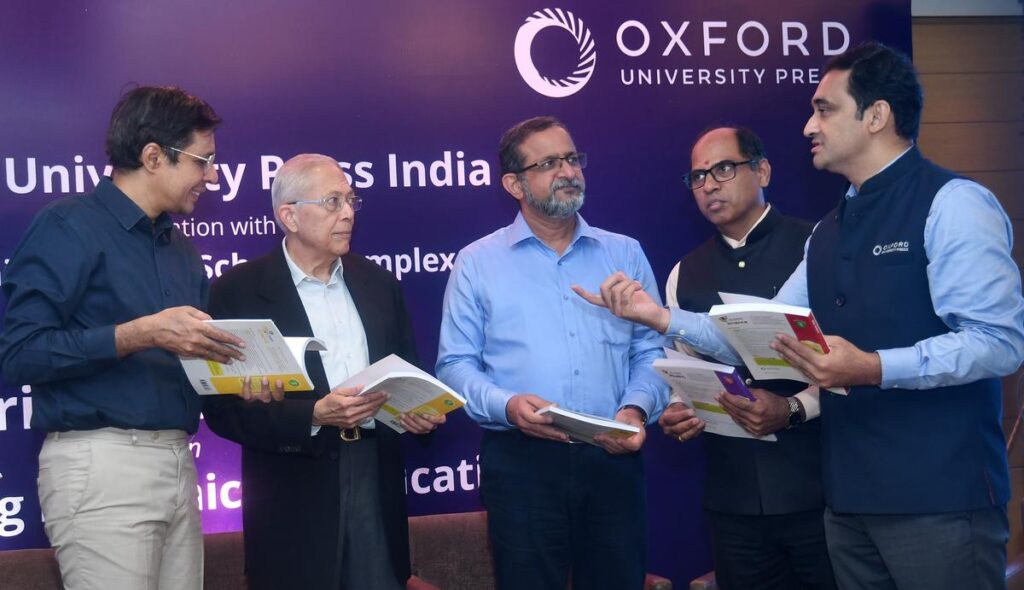
We need to encourage students to think differently and as principals, all of you have been given the responsibility to bring teachers together and motivate them to take teaching to the next level,” said V. Kamakoti, Director, IIT Madras.
He was addressing a meeting of principals on “Changing Dynamics in Education” organised by the Oxford University Press India in association with the Chennai Sahodaya Schools Complex.
“A major challenge teachers face post the COVID pandemic is how to address the attentiveness of children. There is a restlessness that has set in and at a time when there are several changes, we need to look at how we dynamically adapt to it as educators,” he said.
Mr. Kamakoti spoke about a course on “out-of-the-box thinking”, which IIT-M has introduced and that this approach would be highly beneficial for students if adopted by schools. He highlighted other initiatives by IIT-M, including the Democratising Education and Science Initiative (DESI) and the data science programme being offered to students.
“I would encourage schools to implement the Right to Education Act properly. There is so much brilliance among children from underprivileged background and they should be given opportunities,” he said. Appealing to the school principals, he asked parent-teacher associations to take the message forward to encourage students to study something of their choice and not what their parents want them to.
“In the Indian Context, inclusive education needs to be expanded to bring in all those who are excluded or not made to feel that they belong to regular schools and regular classrooms because of a disability, social, economic or linguistic factors,” said N. Ravi, Chairman, Kasturi and Sons Ltd.
Speaking about how nearly 15% of the children fall out of the regular schooling system either because they could not afford a place in the first instance or were not cared for well enough, Mr. Ravi said that this resulted in a lot of despair for their families as well as loss of talent. “Above all, the system does not seem to recognise the dignity and worth and the right to education of so many children and is in need of a great deal of reflection,” he said.
Given the undoubted advantages of inclusive education not just to those who are traditionally excluded but also to other children and society at large, Mr. Ravi said there should not be any hesitation in moving towards this. Inclusive education in schools opens their eyes to the wider diversity that exists all around them and prepares them to face the world at large and makes them better citizens.
Sumanta Datta, managing director, Oxford University Press India, introduced their “Oxford Inspire” books, which have been conceived for all subjects for students of Classes 1 to 8. “Our focus is on providing a flexible learning environment through these resources. The books as well as online resources we have come up with, are the result of how we can include pedagogical insights which will help progress on competency but also make it fun for the learners,” he said.


Leave a comment